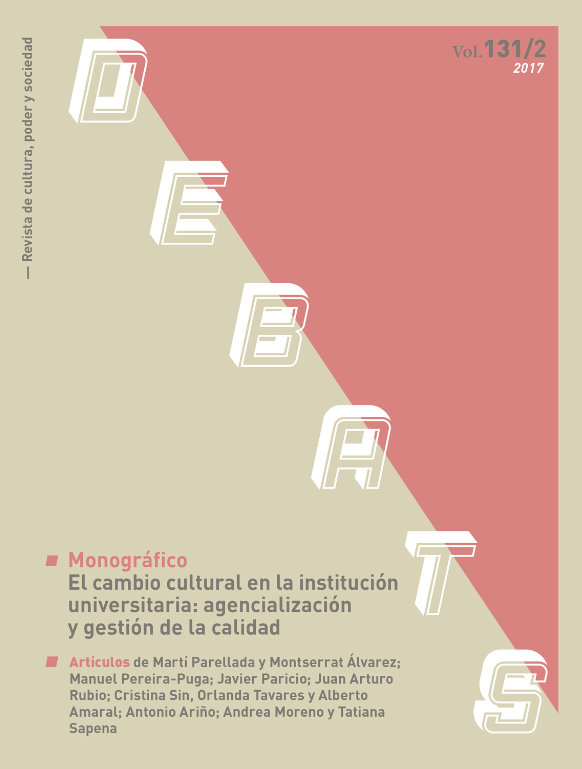The evaluation practice of accreditation from the panel of experts: an ethnographic case study in the Community of Madrid
Abstract
Accreditation is defined by the European Higher Education Area quality-assurance agencies as a key element in quality management and continuous improvement in university teaching-learning processes, and is an institutional practice that started to be developed in 2014 in Spain. This article illustrates the case of the Community of Madrid Quality Agency, as a case-study analysis through my experience as a panel member for the accreditation of higher-education qualifications. Methodologically, it is based on an autoethnographic approach and uses the theory of symbolic interactionism to reveal and analyse the evaluative process and
culture. For this purpose, two analytical axes were drawn: student learning-outcomes and the value of the human resources assigned to the degree in terms of their academic research, both criteria which the quality agencies consider to be critical for a favourable final report. The interactions of the expert panel at the different stages of the accreditation consideration-process, based on these two criteria, are presented with the aim that future case studies will test them in the context of collaborative learning, helping to achieve the greatest possible academic rigor in the accreditation process.
Downloads
Downloads
Published
How to Cite
Issue
Section
License
Without prejudice to the provisions of article 52 of Spanish Law 22/1987 of November 11 on Intellectual Property, BOE (official state bulletin) of November 17, 1987, and pursuant to said legislation, the author(s) surrender(s) free of charge its rights of edition, publication, distribution and sale of the article, for its publication in Debats. Journal on Culture, Power and Society.
Debats. Journal on Culture, Power and Society is published under the Creative Commons license system in accordance with the «Recognition - Non-Commercial (by-nc) modality: The generation of derivative works is permitted provided that commercial use is not made. Nor can the original work be used for commercial purposes».
Thus, when the author submits his/her contribution, he/she explicitly accepts this assignment of publishing and publishing rights. Authors also authorize Debats. Journal on Culture, Power and Society to include their work in an issue of the journal to be distributed and sold.











